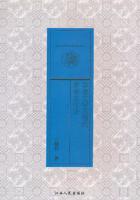In the second volume of the " Elements," after a feeble and chiefly verbal disquisition on reason, he proceeds to treat of the "fundamental laws of belief." I reckon the phrase a very happy one, and a great improvement on "common sense," which labors under the disadvantage of being ambitious; inasmuch as it usually denotes that unbought, untaught sagacity, which is found only in certain men, and which others can never acquire, whereas it can be admitted into philosophical discussion only when it denotes principles which are regulating the minds of all.I have a remark to make as to the place in which he discusses these fundamental laws.It is after he has gone over the greater number of the faculties, and he seems to treat them as involved in reason.And I acknowledge that there may be some advantages in first going over the faculties and then speaking of these fundamental laws.But we must guard against the idea that these principles are not involved in the faculties which he has previously gone over; such as, perception, abstraction, and memory.The "fundamental laws"are not to be regarded as different from the faculties: they are, in fact, the necessary laws of the faculties, and guiding their exercise.These laws work in all minds, infant and mature, sane and insane.M.Morel was asked to examine a prisoner who seemed to be deranged, and he asked him how old he was; to which the prisoner replied: " 245 francs, 35centimes, 124 carriages," etc.To the same question, more distinctly asked, he replied,: " 5 metres, 75 centimetres."When asked how long he had been deranged, he answered:
"Cats, always cats." M.Morel at once declared his madness {291} to be simulated, and states: " In their extreme aberrations, in their most furious delirium, madmen do not confound what it is impossible for the most extravagant logic to confound.There is no madman who loses the idea of cause, of substance, of existence." (See " Psychol.
Journal," Oct.1857.)
Stewart's doctrine of causation seems to me to be deficient and inadequate.He is altogether right in calling it a fundamental law of belief, which necessitates the mind to rise from an effect to a cause.But he does not seem to observe all that is involved in the cause.He gives in too far to Hume on this subject, and prepares the way for Brown's theory.He does not see, in particular, that causation springs from power being in the substance or substances which act as the cause, and that we intuitively discover power to be in substances both mental and material.
His distinction between efficient and physical cause is of a superficial and confused character.It may be all true that, in looking at physical action, we may not know intuitively where the full efficiency resides, whether in the physical object alone or in mind (the divine) acting in it; but we are certain that there is an efficiency somewhere in some substance.I am by no means sure that he is right in limiting power in the sense of efficiency to mental action.
I agree here with the criticisms of Cousin (as indeed Iagree with most of the criticisms of Cousin on the Scottish school) where he says that, while our first idea of cause may be derived from our own voluntary action, we are at the same time intuitively led to ascribe potency to other objects also -- , and that Reid and Stewart, in denying that we discover efficiency in body, are acting contrary to their own principles of common sense, and in contradiction to the universal opinion of the human race, which is, that fire burns and light shines.(See Cousin, " Phil.Ecoss.," P.
437, ed.1857.) Stewart has also failed, as it appears to me, to give the proper account of the intuition which regulates and underlies our investigations of nature.This is not, as he represents it, a belief in the uniformity of nature; a belief which appears to me to be the result of experience, which experience, as it discovers the rule, may also announce the exceptions.The child does not believe, nor does the savage believe, nature to be uniform.The underlying beliefs, which carry us on in our investigations of nature are those of identity, {292} of being, of substance and quality, of cause and effect.Hence it is quite possible to prove a miracle which may not be in conformity with the uniformity of nature, but is quite compatible, as Brown has shown, with our intuitive belief in causation for when creature power fails we can believe in creative.
It is in the second volume of the " Elements " that we find the logical disquisitions of Stewart.He has utterly failed in his strictures on Aristotle's logic.The school of Locke, and the school of Condillac, and the school of Reid, have all failed in constructing a logic of inference which can stand a sifting examination.The Aristotelian analysis of reasoning stands at this moment untouched in its radical positions.The objections of Campbell and Stewart have been answered by Whately, who shows that the syllogism is not a new or peculiar mode of reasoning, but an analytic of the process which passes through the mind when it reasons.In giving an adherence to the Aristotelian analysis, I admit that improvements were wrought in it by that school of logicians which has sprung from Kant, and of which Hamilton was the leader in Great Britain, followed by such eminent men as Mansel, Thomson, and Spalding.But their improvements ought not to be admitted till the formal logicians thoroughly deliver their exposition of the laws of thought from all that false Kantian metaphysics which represents thought as giving to the objects a " form " which is not in the objects themselves.Besides, I cannot allow logic to be an <a priori> science except under an explanation: I admit that the laws of thought operate in the mind prior to all experience; but I maintain that they can be discovered by us only <a posteriori>, and by a generalization of their individual actings.













